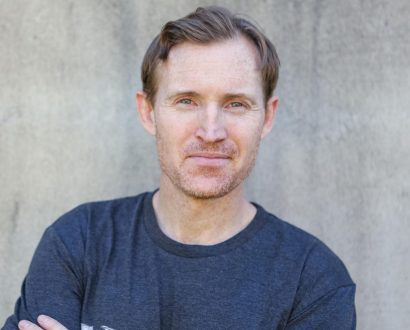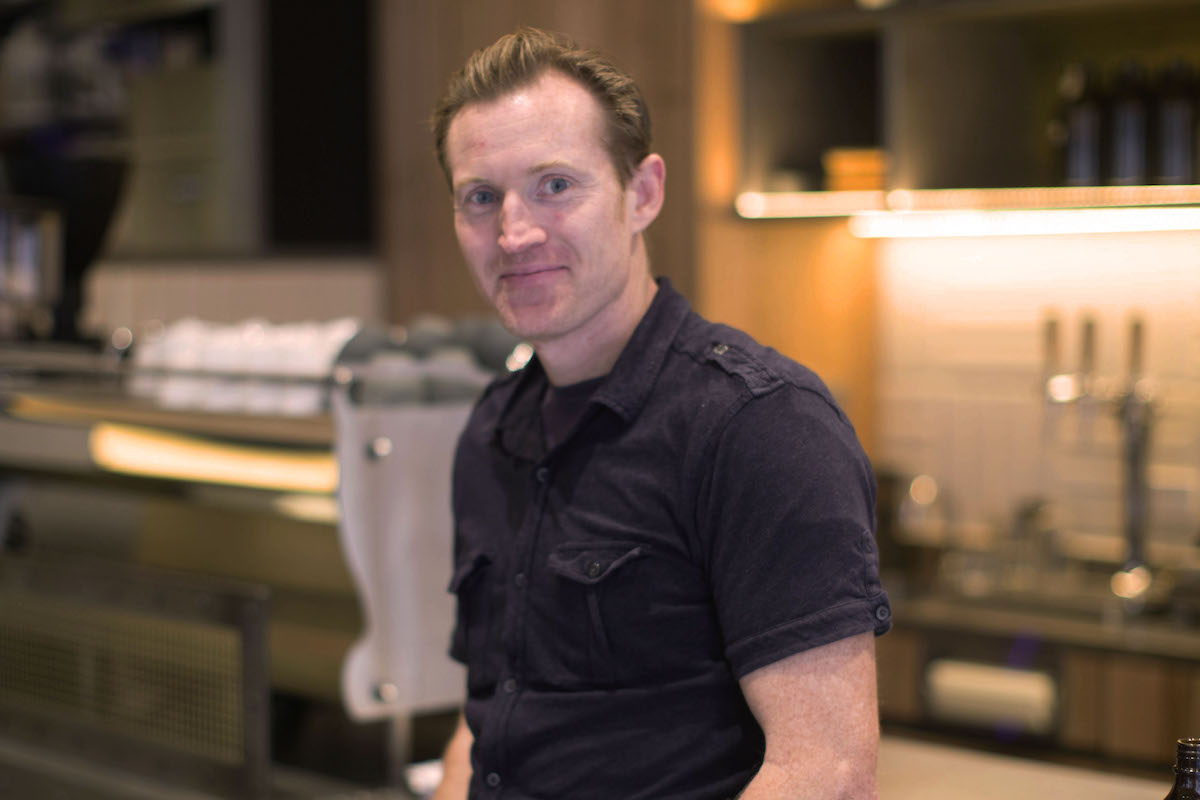Pablo & Rusty’s Saxon Wright: Taking on the single-use world

Saxon Wright is driven by passion, science and a will to eradicate single-use disposables in the coffee industry. After opening Pablo & Rusty’s in 2003 and seeing first-hand the full spectrum of the coffee supply chain – from the farm through to the end consumer – Saxon set an objective: What would it look like to create zero waste through the whole supply chain? From this initial thought came Huskee, a sustainable alternative to single-use takeaway cups.
The Founder talks with The CEO Magazine on becoming a leader in the sustainability movement.
How did you get into the coffee industry?
I stumbled into coffee while I was at university. I was studying chemistry and working part-time at a roastery. Studying science got me intrigued. I felt like there was an opportunity to better understand what was happening in coffee. I had a couple of my own businesses for a while, in sports science. After some travelling I spent some time in corporate finance. I started to think that having business exposure, experience running my own small business and having coffee lingering in the background could all be combined. I thought, "There’s a business in this, let’s make it happen."
What did you want to achieve with Pablo & Rusty’s?
Early on, I saw an opportunity to do something that would shift the industry forward. I felt like there wasn’t a lot happening in the premium coffee space and thought I could build something for the specialty cafe market. The objective was to become the best coffee roaster in the country and provide something unique for cafes.
How did the idea of Huskee come about?
Over the years, we’d been working with several coffee farms and running our cafes. Therefore, we covered the full spectrum of the supply chain from the farm through to the end consumer. An idea had started early on about the notion of sustainability and waste. We set an objective: What would it look like to create zero waste through the whole supply chain of coffee?
Initially, we thought to start back at the farm. One of the farm waste products was husk, a raw organic material that is a byproduct of the milling stage in coffee production. One of the ideas thrown around was, "Wouldn’t it be great if we could turn this into a coffee cup?"
What started as a basic idea evolved into creating a unique cup that solved problems at the front end. But the breakthrough was when we started looking at the cafe end and the waste of the takeaway and disposable coffee cups. Even though husk waste is still a problem, the real issue is the takeaway cups. There are 600 billion single-use disposables thrown into the rubbish every year. If Huskee can create a dent in that issue, that would be amazing.

How do you go from having an idea to making it viable?
The concept of business is powerful. Business can be the solution to a lot of problems. Using enterprise, a scalable business platform that is commercially viable and creates jobs, can work to solve problems. While not for profits are good and necessary, getting more businesses involved in tackling global issues can have a significant impact.
I also realised that my coffee business was not a cup business. Crafting a business that would suit the purpose was important. That’s when we started looking at Huskee as its own company and saying, "This business needs to run and stand on its own two feet. It needs its own team, its own focus and its own unique proposition."
What were some of the challenges you faced?
The design phase was a challenge, mainly because our product is simple. Cups have been around for a long time; the idea of a cup is not new. How do you make something valuable with something so ubiquitous? Extending that through to create the HuskeeSwap system was the next big challenge.
Change is significant and people’s behaviour around the act of getting a coffee is habitual and repeated. We introduced a shift, where we wanted people to drop their cups off and swap them for a clean one. While it’s a simple concept, it’s a significant shift for people.
Let’s talk about Kickstarter. Why did you decide to use it and what was the process?
Kickstarter was great. For us it did a couple of things: it was a fantastic marketing tool, and it got us and our name out there very quickly. In some ways, we actually got paid for it. Instead of paying to do global marketing, it paid for itself and we got enough money to help fund and get the project off the ground.
In its real sense, it did give us early momentum and initial funding to progress. Huskee had an international following early on and after its launch the attention only increased. Scaling internationally because we had so much demand has been part of our challenge.
Kickstarter is great for products that people can connect with easily and can clearly see how they fit in their lives. Products that are relatively straight forward, present good value and appeal to a mass market generally do well.
There were elements about our project that naturally lent themselves to Kickstarter and we’ve received the benefit from that. The biggest one is that significant international marketing piece and the awareness that comes with it.
Would you recommend Kickstarter to other small businesses?
It’s excellent and is absolutely worth considering. I don’t believe all products or services are suited. You definitely need to be hitting a mass market and targeting a broad spectrum of people. If you have a niche product or a specialised product that is difficult to understand in a short space of time, Kickstarter might not be the best platform. It is a lot of work. You have to put a lot into it to get a lot out of it.
Now that you’re fully-fledged in the discussion of sustainability, have you implemented any changes to Pablo & Rusty’s?
Our vision for Pablo & Rusty’s has always included the idea of sustainability and one of our strategic objectives is to be the most sustainable coffee company we can be. We haven’t changed our direction. We have continued to evolve what we do and continued to try to activate new ways of doing things, moving into more sustainable packaging and lower energy use. We are a B Corp certified company and aim to be Carbon Neutral certified early next year.
We’ve got a bunch of initiatives that are enabling us to continue to move forward. Now Huskee can do its own thing, with its own team and its own structure. It’s also able to fund itself and capitalise on the growth, internationally and locally.
What is your advice to companies wanting to become more sustainable?
It’s becoming clear that customers are looking for sustainable businesses. Every company has a responsibility to operate sustainably now. Companies need to build more sustainable operations as well as providing sustainable products and services.
We all need to be part of the solution. I would encourage all companies to act. There are also benefits for companies who do it well, communicate it well and engage their audience.
The next step for businesses is to build sustainability into their business model and think about how they can participate in creating solutions or products that have a positive impact.
There’s a significant part of the economy that’s looking for answers in that space, with investors looking to invest in solutions and consumers looking for products that are part of the resolution. They want to see a proactive and positive impact happening. I think that’s part of the reason why we’re seeing success with Huskee; the more the business grows, the more significant effect we’re having in the world.
There is a great deal of problems out there, which represent opportunities for businesses. People wanting to start a business should look at where the problems are. There are a lot of questions in waste and issues around sustainability. There are a variety of areas that people could tackle or tap into to participate and create great businesses that do well, create a profit and employ people, while tackling key challenges that we have in society and in our world.
What is your leadership philosophy?
Leadership is about bringing the best out in people. I certainly can’t do everything on my own and I don’t want to. Leadership is about surrounding myself and the project, or the problem, with the most talented people I can and helping them work together. We don’t have a team of rock stars.
We have highly capable people that can work together as a team and a team working well can achieve amazing things. My role is to find great people and help them work together and unlock their potential, not just as individuals, but as a team.
How do you stay motivated?
My personal approach is to ensure I give myself enough space to stop, to stand back and to think. Again, if I’ve got a good team of people and they’re getting the job done, I feel like my role is to step back and ensure I understand the big picture, the issues that we’re facing and make sure we’re constantly aligned to our focus. As the businesses grow, my job is to ensure I can provide the clarity of direction and where we’re going.
Lastly, what is your overall vision for the companies?
For Huskee, the opportunity is to make a significant dent in the single-use world. The mission is to enable a transition from single-use takeaway cups and the team is working hard to achieve that.
For Pablo & Rusty’s, we want to demonstrate that a company can operate sustainably and be successful, without it costing the earth. Our long term hope is to see sustainably grown coffee adopted widely across Australia.
Read next: How to survive your first year in business